HOA Law
Homeowners' associations (HOAs) and common-interest communities, navigating the legal framework is crucial. In Nevada, the Common-Interest Ownership Act, found in Chapter 116 of the Nevada Revised Statutes (NRS), serves as the cornerstone of regulations governing these communities. In this blog post, we'll explore two significant components of this act: NRS 116.31069 and NRS 116.31083, both of which fall under the broader Chapter 116.
Chapter 116: A Brief Overview
Chapter 116 of the NRS, titled "Common-Interest Ownership (Uniform Act)," is designed to provide a comprehensive legal framework for common-interest communities, including condominiums and homeowners' associations. These communities often share amenities, resources, and responsibilities, making it essential to have clear guidelines for their governance.
If you're up for a little adventure in reading (or perhaps a marathon, because let's face it, it's a long one), you can explore the entire Nevada Revised Statutes (NRS) Chapter 116 - Common-Interest Ownership Act. It's like the epic novel of homeowners' associations and community living in Nevada. Grab your reading glasses and enjoy this legal odyssey at https://www.leg.state.nv.us/nrs/nrs-116.html.
HOA Website as a Legal Mandate
NRS 116.31069 is a pivotal component of the act, and it underwent significant amendments to adapt to the digital age. This statute mandates that associations of common-interest communities, particularly those with 150 or more units, establish and maintain secure internet websites or electronic portals. These platforms must be accessible to any unit owner within the community.
NRS 116.31083 is another critical provision within Chapter 116, addressing the role of HOA websites as a legal mandate. This statute emphasizes the importance of HOA websites in enhancing transparency, communication, and accessibility for unit owners within the community.
Requirements for HOA Websites in Nevada
Document Availability: Associations are required to make essential documents available on their websites or portals. Governing documents, such as governing documents (CC&Rs), bylaws, and rules and regulations, should be readily available on these websites. This empowers unit owners to understand their rights and responsibilities.
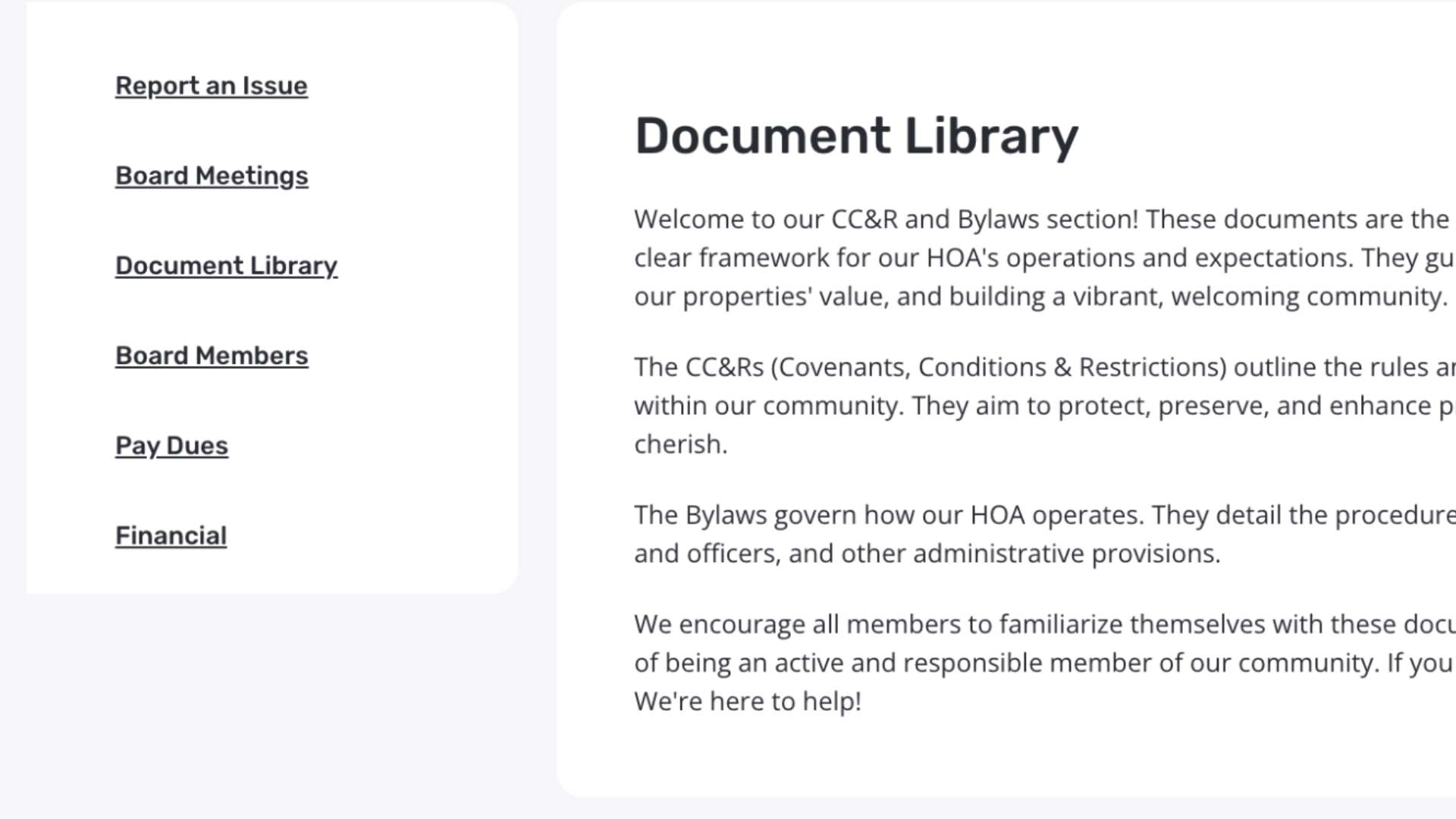
Meeting Notices and Agendas HOA websites serve as platforms for providing meeting notices and agendas to unit owners. This ensures that unit owners are well-informed about upcoming discussions and decisions.
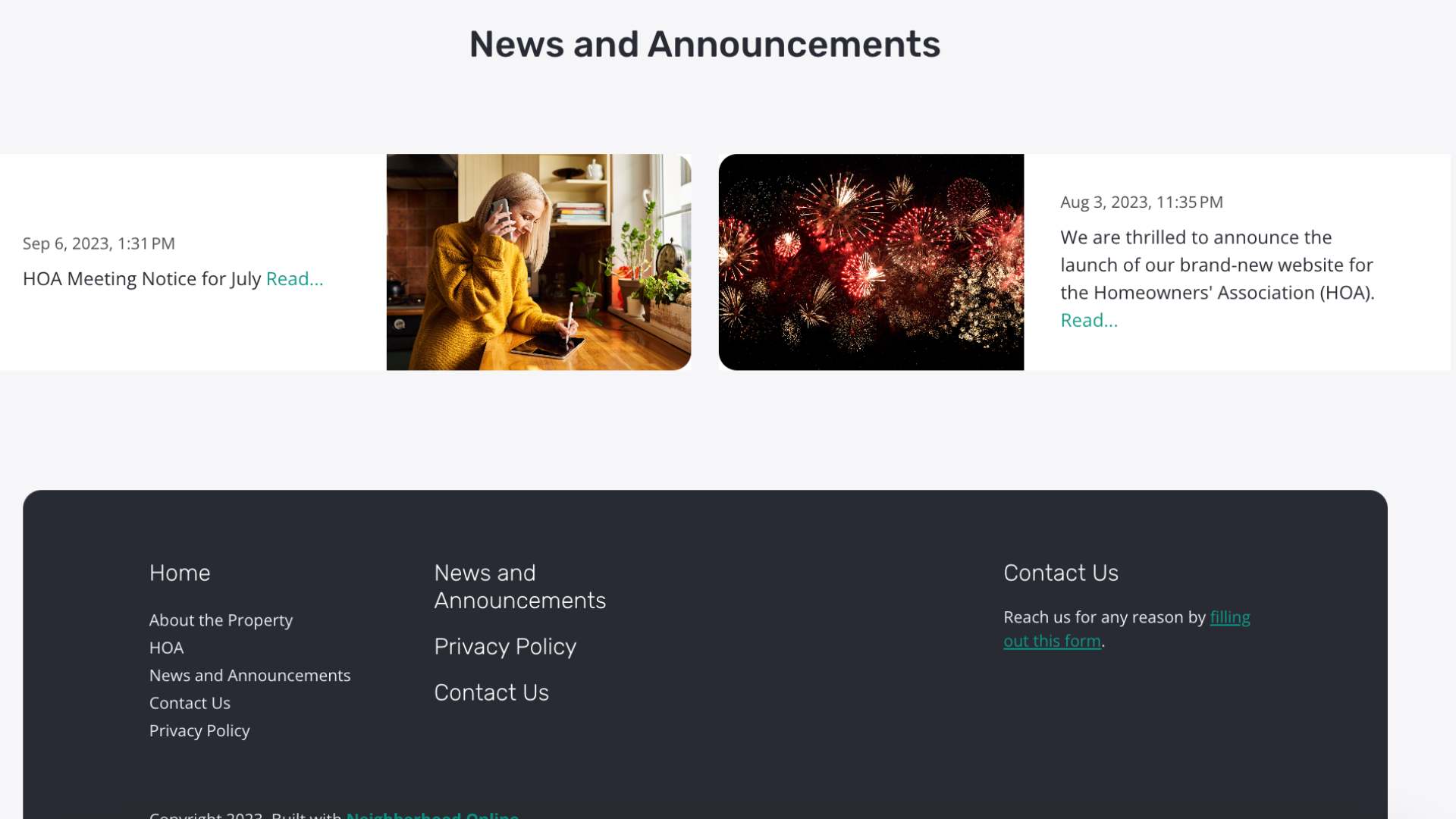
Financial Transparency HOAs are required to post financial statements, budgets, and financial reports on their websites, fostering trust among unit owners by allowing them to monitor the association's financial health.
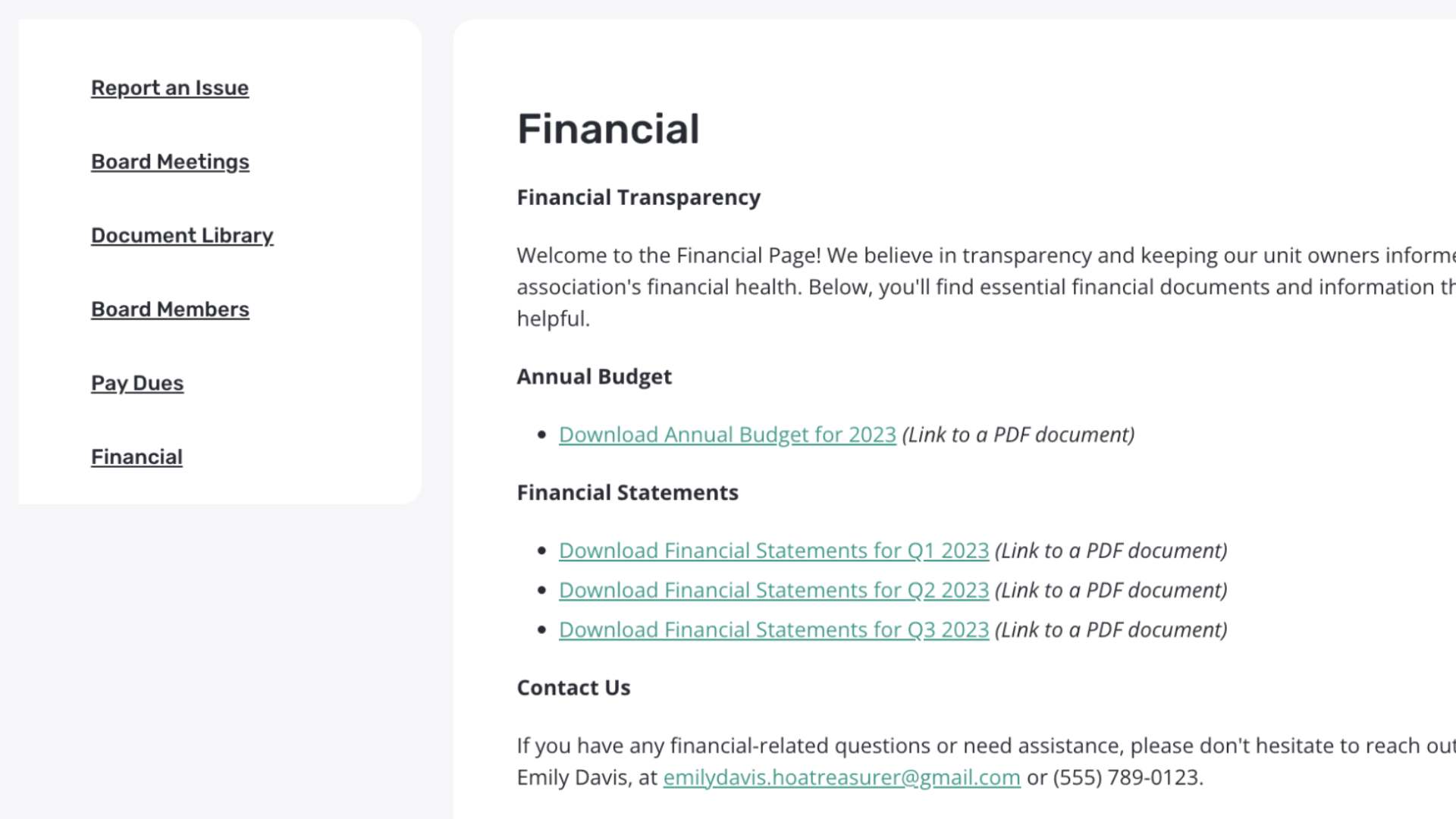
Meeting Minutes Meeting minutes are published online, enabling unit owners to review board discussions and actions taken. This promotes accountability and keeps residents informed.
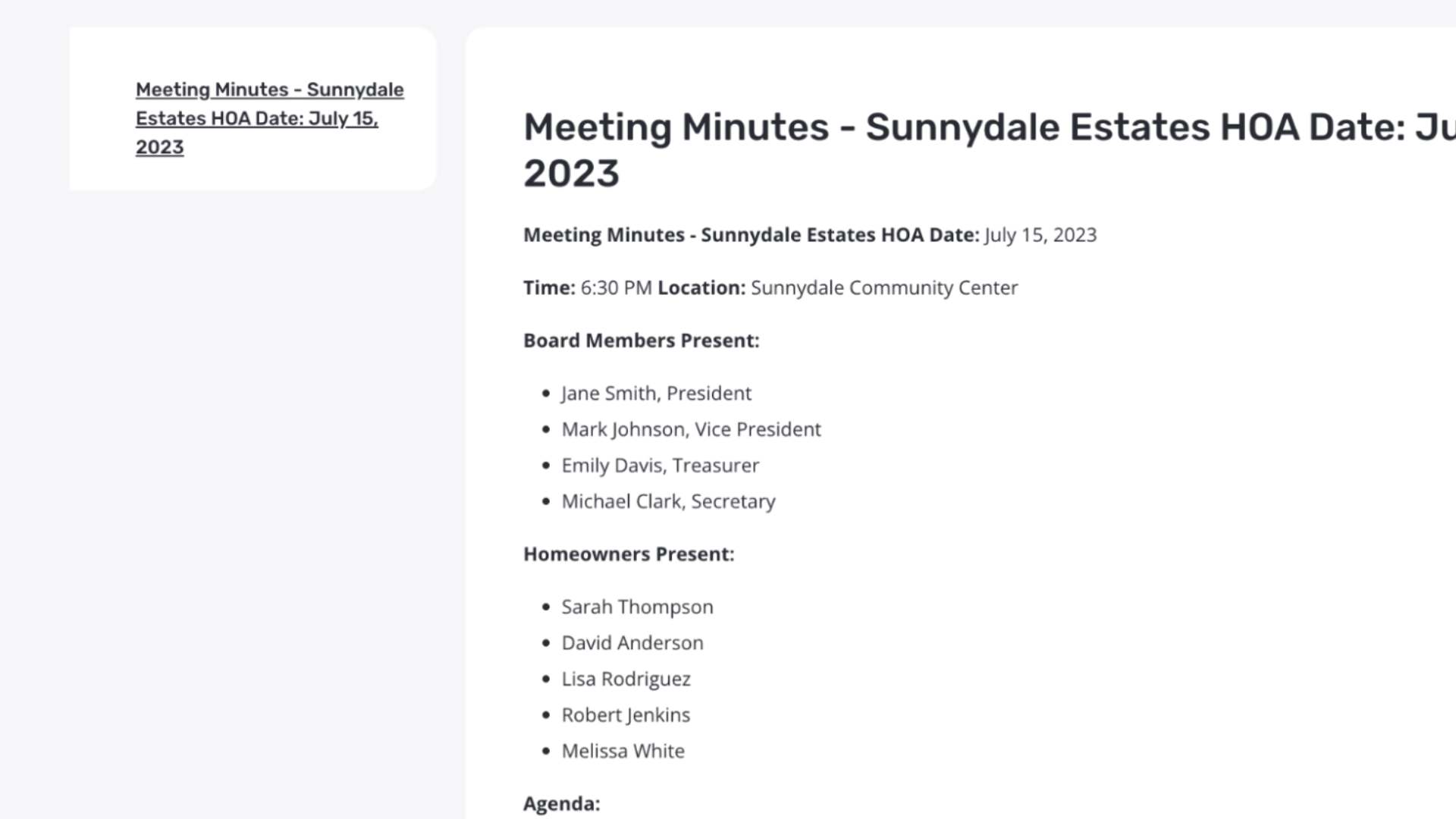
Contact Information and Online Forms HOA websites should provide contact information for board members, property management, and relevant committees. Additionally, they can offer online forms for various purposes, simplifying administrative processes and encouraging efficient communication.

Electronic Assessment Payments Starting from January 1, 2023, a significant addition to NRS 116.31069 is the requirement for these websites or portals to enable electronic assessment payments. This modernizes the financial aspects of common-interest communities, making it more convenient for residents to fulfill their obligations.
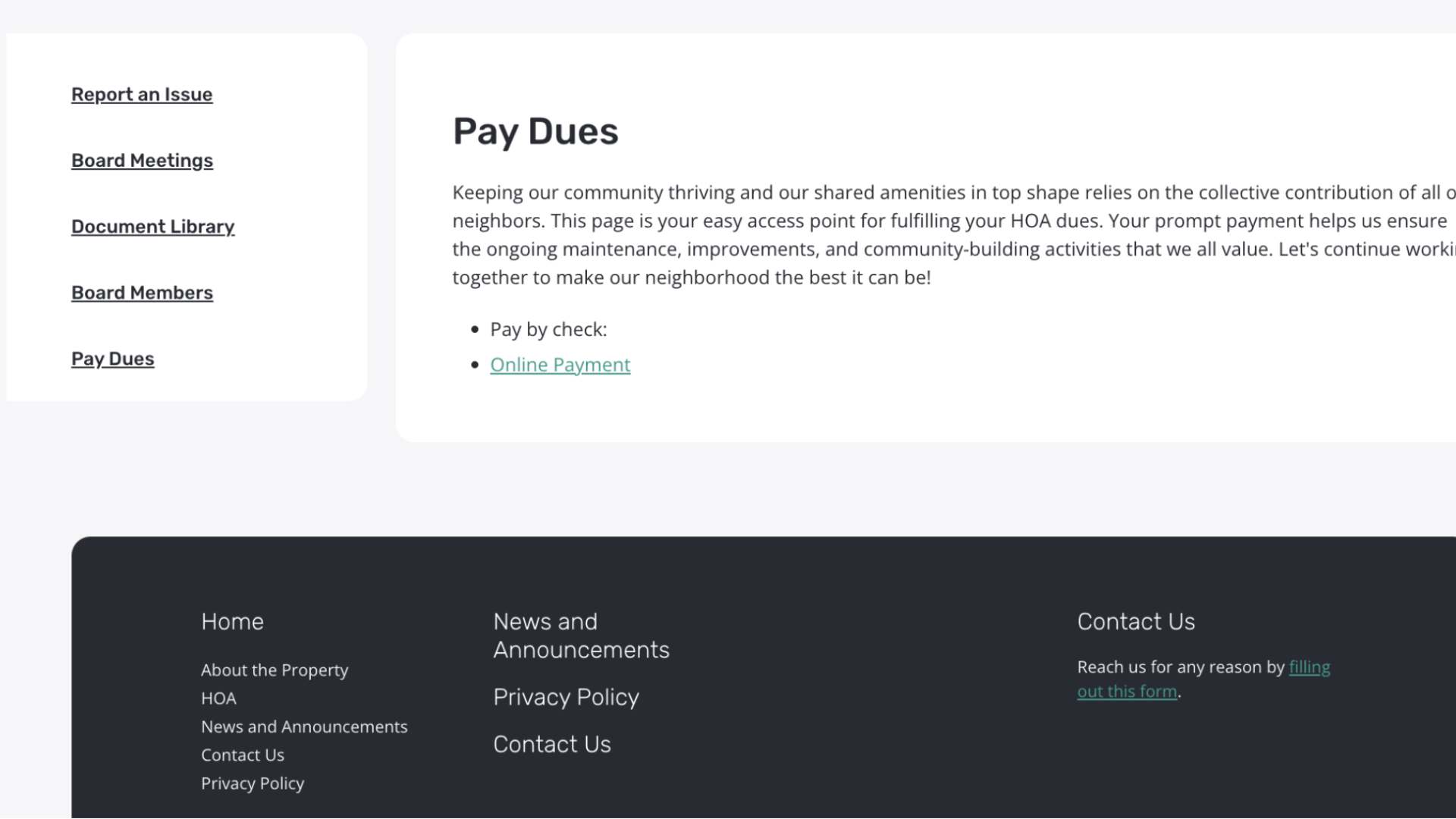
In conclusion, Chapter 116 of the Nevada Revised Statutes, particularly NRS 116.31069 and NRS 116.31083, plays a pivotal role in regulating common-interest communities and HOAs in the state. These statutes reflect the legislature's commitment to enhancing transparency, communication, and accessibility for unit owners within these communities. By complying with these legal mandates and embracing digital solutions, common-interest communities can foster harmonious environments where residents are well-informed and actively engaged in shaping their living spaces.







